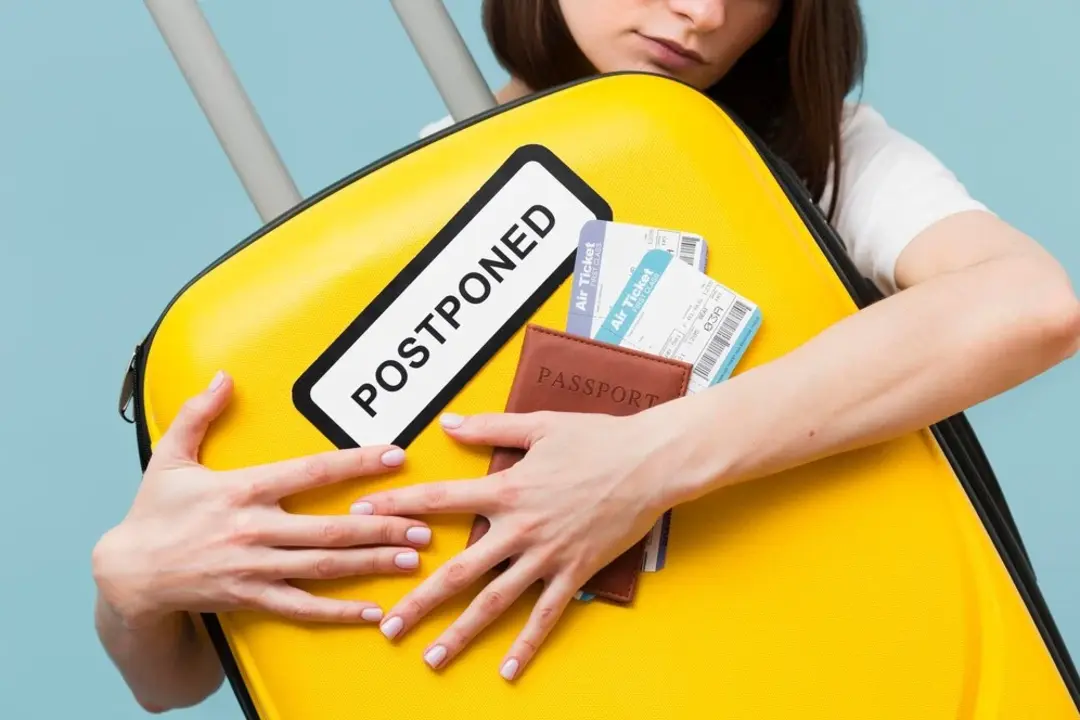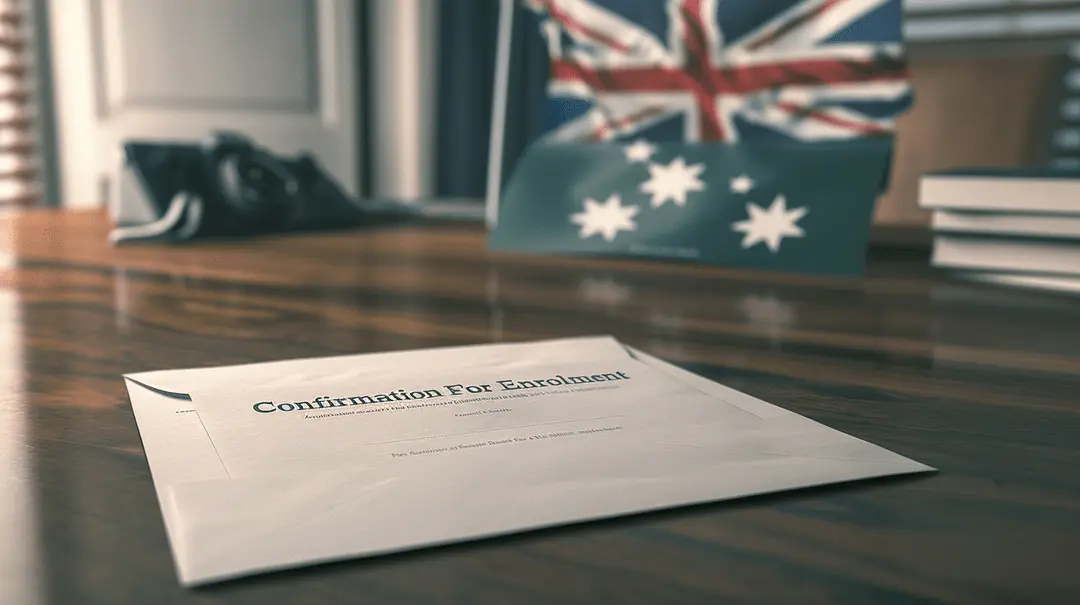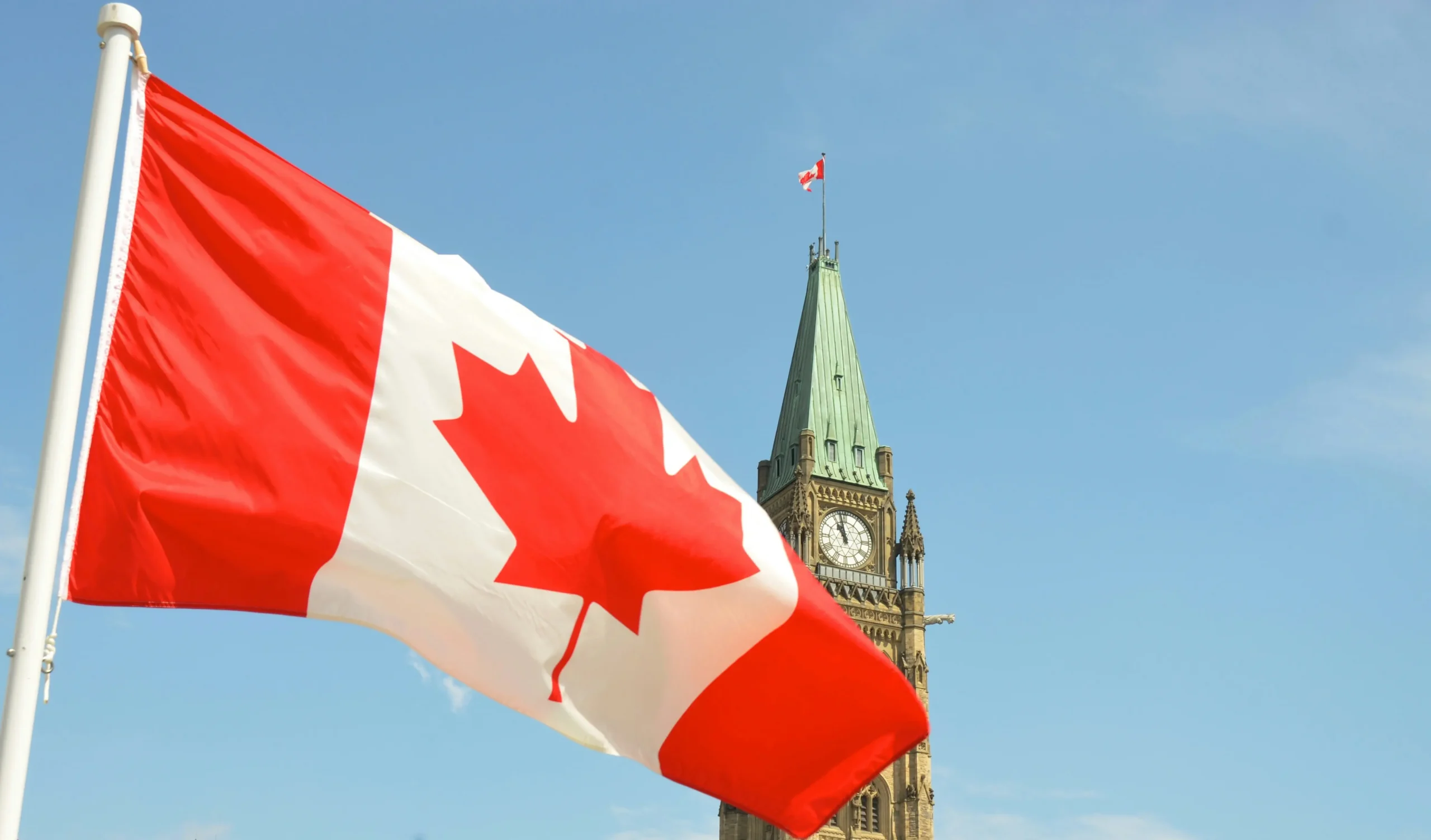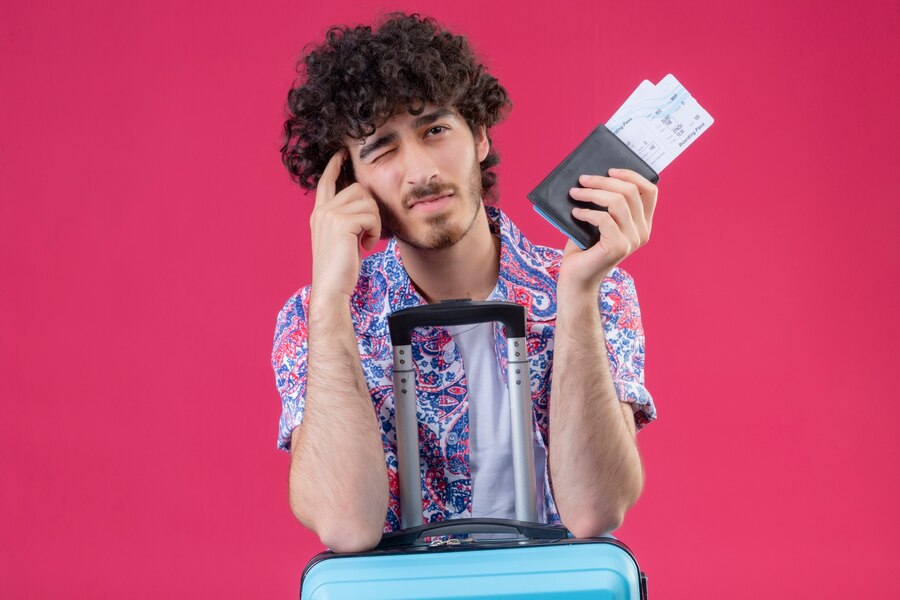Table of Contents
Wishing to study in Australia, a country known for its dynamic cities, breathtaking scenery, and well-regarded universities? Even though it’s a well-liked destination, applying for a visa can be intimidating. Students are frequently overwhelmed by common hazards, rejection anxiety, and the necessity of having a strong backup plan.
But stop worrying! Your one-stop resource for information on the Australian student visa application procedure for 2025–2026 is this blog. We’ll explore:
- Exposing the reality of the refusal rates for visas: We’ll dispel the myth around rejection rates and provide you with important knowledge.
- Steer clear of typical pitfalls: Take note of the errors that other people have made and make sure your application is solid from the beginning.
- Creating an impenetrable backup strategy: Learn how to increase your chances of success even if you have a fallback plan in place.
- Handling a visa rejection: Are you about to be turned down? We’ll help you understand the reapplication procedure and increase the chances that your visa will be granted.
With so much helpful information, professional advice, and helpful suggestions all in one place, this site provides you with all the resources you need to apply for an Australian student visa and achieve your dream of studying abroad. Start your Australian journey by reading on to learn “unheard facts and information”!
Key Takeaways
- By 2023, just half of the applicants had their student visas approved, with a remarkable 50% rejection rate for Australian candidates.
- Australia’s student visa rejection rate decreased by 32% in 2020–2021, however it remained high—24.3%—for Indian candidates.
- Not satisfying the admission, academic, English language, and financial standards is the primary cause of denied visas.
- The necessary paperwork should be verified, a true temporary entrant statement should be written, and a suitable course and institution should be selected by the student.
- There are various student visa categories, including subclasses 500, 590, 407, and 485 depending on your goal and length of study.
Latest Updates In 2025
- The international student population in Australia soared to a remarkable 713,145 as of February 2024, signifying a significant surge in successful student visa applications.
- This impressive figure translates to encouraging success rates for students pursuing their academic ambitions Down Under, allowing them to chase their dreams with renewed vigour.
- With the easing of travel restrictions imposed due to the COVID-19 pandemic, student visa approval rates, particularly for full-time registered programs (Subclass 500), have rebounded to pre-pandemic levels.
- However, it is crucial to note that immigration policies are subject to change. Always ensure that you are consulting the most up-to-date information and requirements from the official Department of Home Affairs website to stay abreast of any potential modifications.
Australia Student Visa Rejection Rate In 2025
In the final two quarters of 2023, about 1 in 5 foreign students had their visas denied.
The following is the breakdown of Australian student visa rejection rate from the past few years:
| Year | Australia Student Visa Rejection Rate (%) |
| 2023 | 501 |
| 2022 | 24.32 |
| 2021 | 21.83 |
| 2020 | 17.34 |
| 2019 | 15.55 |
| 2018 | 13.4 |
| 2017 | 12.2 |
The Department of Home Affairs reports that the percentage of Australian visas denied in 2020–2021 fell by 32% compared to 2019–2020. Due to the rigorous examination of the applicants’ actual temporary entrant status, the rejection rate for India student visas to Australia has risen to 24.3% in 2022—the highest level since 2012.
Rejection of an Australian student visa can occur for a number of reasons, such as not meeting the standards for admittance, lack of academic standing, insufficient funds, and poor English language. Students should check the necessary paperwork, send in a true temporary entrant statement, and choose an appropriate school in order to avoid these traps.
Types of Australian Student Visas
Hope the information above gave you a clear idea about the Student Visa rejection rate. To get a clear picture about the Australian Student Visa, you need to know the types of Australian student visas available depending on the purpose of your course and duration of study. Now, let’s explore the different types of Australian student visas that you can apply for depending on your purpose and duration of study:
| Visa Type | Description |
| Student visa (subclass 500) | You can stay in Australia for up to 5 years Part-time work rights Your family members can accompany you. |
| Student Guardian visa (subclass 590) | Guardians of students under 18 years can stay in AustraliaYou can learn English language courses for up to 20 hours a week. |
| Training visa (subclass 407) | You get to reside in Australia for up to 2 years.Suitable for workplace-based training programmes or formal development programmes. |
Australian Student Visa Fee
Pursuing Dreams Down Under Comes at a Cost (But It’s Worth Every Penny!): Let’s delve into the visa fee for your Australian student adventure. Here’s a breakdown of the essential aspects:
- Main Application Charge: The primary expense associated with an Australian student visa is the visa application charge for a Subclass 500 visa. As of this writing (late 2023/2024), this fee stands at approximately ₹38,573.
- Important Note: This is merely the starting point. Depending on your circumstances, there may be additional costs to factor in, such as health assessments, character certifications and any necessary document translations. Be sure to incorporate these potential expenditures into your budget when planning for your student visa application.
Australian Student Visa Validity
| Course Length | Course Completion Timeframe | Typica Visa Stay Period |
| 10 months or longer | Ends November – December (Australian academic year) | Up to March 15th of the following year (cover’s post study period) |
| 10 months or longer | Starts January to October | 2 months longer than your course duration |
| Less than 10 months | Any timeframe | 1 month longer than your course duration |
Australian Student Visa Success Rate 2025 And Rejection Rate
While grasping the overall Australian student visa success rate in 2025 provides a valuable foundation, it is equally crucial to acknowledge the potential for rejection. Let’s delve into the latest data:
| Source | Success Rate | Rejection Rate |
| UniZcco (based on FY 2024 data) | 85.1% – 86.7% | 13% |
| Thepienews (Subclass 500 visa) | 89.99% | 11% |
| Universityworldnews | 82% | 8% |
| Student Visa (based on FY 2023) | 87% (est.) | 11% |
Top Reasons For Australian Student Visa Rejection
While it can be difficult, getting an Australian student visa is not impossible. You must understand the reasons behind some application rejections if you wish for a smooth visa application process. Some of the primary reasons for the high percentage of Australian student visa denials are listed below.
- Not fulfilling the entry requirements: You need to prove that you are a genuine temporary entrant (GTE) who intends to study and return to your home country. You also need to meet the academic and English language requirements of your chosen course and institution.
- Insufficient stability in finances: It is important that you to prove that you have enough money to pay for your living expenses, travel expenses, health insurance, and tuition while you’re studying in Australia.
- Inaccurate or missing documentation: Your application for a visa must include all necessary paperwork, including your passport, academic records, English test scores, financial statements, health insurance, and a GTE statement. Additionally, you must confirm that the information in your documents is correct, legitimate, and current.
- Past criminal records or bad conduct: You need to disclose any criminal convictions or pending charges that you have in your home country or any other country. You also need to comply with Australian laws and regulations while studying in Australia. If you have a history of visa breaches, fraud, or violence, your visa application may be rejected.
- Improper Passport: The passport must have been issued within the last ten years and should remain valid for at least six months beyond their intended return date from Australia. In instances where passports fail to meet the necessary requirements, the Immigration Office of Australia will not issue any student visas.
- Incomplete Application Form: If an incomplete visa application form is submitted, the visa request will be denied without exception.
- Character Requirements Failure: Failure to meet the Australia student visa’s character requirements will result in an unequivocal rejection. In the event that your student visa is denied on character grounds, you may not be granted another visa. You must demonstrate good character to visit or reside in Australia. This means you must pass the character test and maintain good character. The character requirements are outlined under section 501 of the Migration Act 1958. They assist in determining whether you possess good character.
What To Do After Australia Student Visa Rejection?
If your Australian Visa gets rejected, you will receive a written notice consisting the reasons for the visa rejection and the alternatives available for you.
- Within 28 days of receiving notice, you may appeal the decision to the Administrative Appeals Tribunal (AAT), depending on your visa type and reason.
- You will have to submit an online application form and pay AUD 1,826 as a fee to appeal to the AAT.
- After receiving your case, AAT will review it and mighty request for some additional information. They’ll hold a hearing in person or by phone.
- The AAT will review and inform you of the final decision in writing.
- You can seek judicial review by the Federal Circuit Court of Australia or request ministerial intervention if you disagree with the AAT’s decision
How To Prevent Australian Student Visa Rejection?
To avoid the common pitfalls that lead to visa rejection, you need to be aware of the requirements and criteria for the student visa subclass that you are applying for.
Some of the key requirements for most student visas are:
- You must be undertaking a full-time course at an accredited university of institution.
- You must meet all the entry requirements for your chosen course of study.
- You must prove that you are a genuine temporary entrant (GTE) who wishes to study and return to your home country after completing your studies.
- You must show proof of financial stability to cover living costs, tuition fees, and travel expenses to study and live in Australia.
- You must obtain a valid passport and meet the health and character (zero criminal records) requirements for Australia.
- Fill out your application completely, truthfully, and with all the necessary data and supporting materials.
- Keep thorough records of your finances and be able to furnish proof of your sources of income and financial background.
- When studying in Australia, abide by Australian rules and regulations to prevent any violations of your visa, fraud, or violence.
- If you are unsure about the visa application process, get expert advice from a study abroad counsellor or a qualified migration agent.
Other Pointers To Avoid Student Visa Rejection In Australia
There are other crucial aspects that students must address while applying for an Australian student visa to avoid application rejection, along with their corresponding recommendations:
Australia Student Visa Rejection History
Honesty is paramount when asked about recent student visa rejections. Truthfully disclose the exact reason for any rejection within Australia or other countries. However, refrain from mentioning rejections for other visa types, such as tourist visas, work permits, exchange visitor visas, or immigrant visas. Focus solely on previous student visa rejections for Australia or elsewhere.
Bearing Educational Expenses
Convincingly demonstrate your financial capacity to bear the overall expenses of pursuing education in Australia, including tuition fees, living costs, travel allowances, and other miscellaneous expenses associated with studying abroad. If the document checklist requires evidence of financial capability, provide it with your visa application. Failure to do so may result in rejection without notification. Declare and substantiate your source of income and the cost of living in Australia.
Proof of Enough Money to Cover Living Expenses in Australia
Present evidence of sufficient funds to cover travel and living expenses in Australia, such as:
- Financial institution deposits
- Government or institutional loans
- Scholarships or similar financial support
- Annual income
- Alternatively, provide evidence of your parent’s or partner’s personal annual income of at least AUD 62,222 in the year immediately preceding your application. If accompanied by a family member(s), demonstrate an income of at least AUD 72,592. The annual living costs in Australia are:
- For students/guardians: AUD 21,041
- For partners: AUD 7,362
- For a child: AUD 3,152
If unable to furnish supporting financial documents proving your ability to afford educational and living costs, your visa application may be rejected.
How To Re-apply After a Student Visa Rejection
If your student visa was rejected the first time, you can re-apply for the visa again, as long as you meet the eligibility criteria and address the issues that led to the rejection.
To re-apply for the student visa, you should:
- Analyse the Reject: Try to resolve problems like missing paperwork, poor English, or an inappropriate course or university.
- Prepare yourself Completely: Collect original, current, and other documentation to strongly back up your application.
- Apply online: Pay the fee (AUD 620) and submit your new application via the Department of Home Affairs website.
- Wait for the Processing: The time for Visa processing can take a few weeks to several months.
- Final Product Acceptance: Soon a written letter granting your visa will be sent to you, with all the details.
- Rejected: Ask the AAT to review the judgement or look into different travel or visa options.
Has There Been A Rise In Australian Student Visa Rejection Rates?
Amid reports that there has been an increase in rejection rates to Australia from Indian students, the Australian envoy said that that is not the case and the rates are pretty much the same as they were last year. He said that the country, obviously, looks forward to meritorious students who fit the right course.
Other Important Points To Consider
- While there’s no assured chance of obtaining an Australian student visa after an initial refusal, by comprehending the grounds for rejection, implementing corrective measures, and potentially seeking professional assistance, you can considerably enhance your prospects of success in your subsequent application attempt.
- It’s imperative to bear in mind that immigration policies are subject to change. Always ensure that you are consulting the most current information and requirements from the Department of Home Affairs website.
FAQs
Q1. Can I appeal for an Australian student visa application refusal?
Ans: Yes, you can appeal for an Australian student visa application refusal to the Administrative Appeals Tribunal (AAT) within 28 days of receiving the notice stating your refusal.
Q2. What is the Australia student visa rejection rate?
Ans: As of 2023, Australia’s student visa rejection rate is expected to be approx 50%, with India facing (24.3%), China facing (20.4%), and Nepal facing (19.9%) which is the highest rejection rate.
Q3. When examining a student visa, what do visa officials look for?
Ans: While examining the student visa, the visa officials look for academic records, English language proficiency, finances, genuine reason for stay, and meeting health and good character requirements.
Q4. What is the visa success rate in Australia?
Ans: In 2023, Australian visa success rates will increase to 56% of pre-pandemic levels, with 228,150 visas granted in 2021-22, compared to 405,742 in 2018-19.
Q5. What is the minimum age to apply for a student visa to Australia?
Ans: While Australian visas do not have an age limit, applicants’ ages are considered to determine whether they are eligible to study.
Thank you for reading about the “Australia Student Visa Rejection Rate 2025: Reasons & Appeals.” For more articles on related topics, we recommend checking out the following:











0 Comments